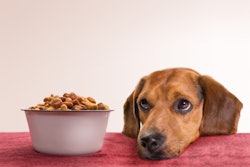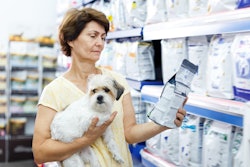
Although pet food’s inflation rate has slowed in early 2024, that hasn’t necessarily translated into lower prices, just slower increases. Some pet owners have had to change their lifestyles to support their cats, dogs and other companion animals.
Pet food inflation slowed in April to become 50% lower than the national consumer price index. Overall pet food price inflation fell from 3.8% in March 2024 to 1.7% in April 2024, John Gibbons of PetBusinessProfessor.com told Petfood Industry in a previous article.
On store shelves though, this meant that pet food prices dropped 0.2% in April compared to March. Pet owners still faced higher costs to feed and care for their companion animals than they did in the past.
In a survey by MarketWatch Guides, 60% of pet owners agreed that it had become more difficult to afford pet ownership. Rising costs have affected pet owners' lives, with 77% of respondents saying they had changed their spending habits to accommodate pet expenses. Nearly half (49%) of pet owners had made fewer personal purchases, such as clothes and beauty products, to afford their pet-related expenses.
Pet owners may be more likely to cut spending on their own food than on their pet’s food. Nearly one-third (31%) of pet owners in MarketWatch's survey said they avoided going to restaurants and purchasing takeout. Compare that to 19% who stated they had compromised on their pet’s food quality. One in ten pet owners (11%) said they’d even considered relocating to a different area with a lower cost of living to afford their pet.
Pet ownership and inflation survey
The MarketWatch Guides Team surveyed 1,000 pet owners using Pollfish, a third-party market research and survey platform, about how the rising cost of living is impacting pet owners. The group collected survey data for this report on February 28, 2024. Of all respondents, 79% were dog owners while 59% owned cats.
















